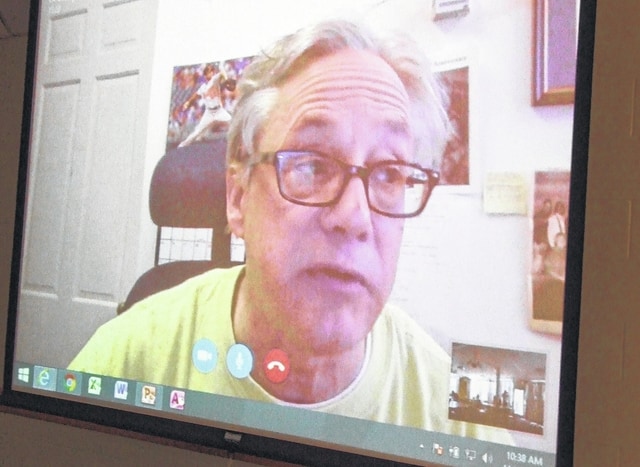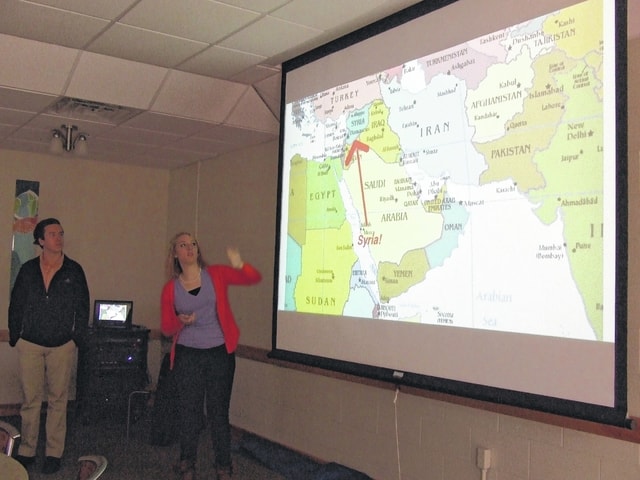

WILMINGTON — Amnesty International (AI) issued a statement Monday urging world leaders to avoid “a knee-jerk anti-refugee agenda” in the wake of the attacks in Paris.
The statement is similar to thoughts expressed Saturday by Amnesty International’s U.S. specialist on Syria during a Skype video call conducted in a statewide AI meeting at Wilmington College. Amnesty International is a global human rights organization, and has worked on refugee issues for decades.
Geoffrey Mock, AI’s Syria specialist, told his Wilmington audience that a narrative that may gain steam after Paris is that resettling Syrian refugees to the United States would be a “Trojan horse” letting in members of the Islamic State group.
But Mock said resettlement is a multi-layered process that can take up to two years.
The United Nations (UN), he said, has a strong vetting process for resettling refugees. That would be followed by the U.S.’s own process which would be led by the U.S. Department of Homeland Security, said Mock.
According to Mock, the United Nations gives resettlement priority to the most vulnerable, such as tortured survivors, those with serious medical conditions, children and teenagers on their own, and at-risk women and children.
The United Nations says the situation of four million people in UN refugee camps in Iraq, Turkey, Jordan, Lebanon and Egypt is not sustainable, putting significant burdens on the host countries which are fairly poor, Mock said.
He said the UN recommends resettling 400,000 of those four million Syrian refugees in other countries.
“We [AI] think the U.S. has to step up and show leadership,” Mock said.
Noting the central location of Wilmington between Cincinnati and Columbus, he mentioned there are organizations that handle refugee transitions into Ohio, including Catholic Charities in Cincinnati and World Relief in Columbus. He encouraged AI members at the statewide meeting to reach out to the organizations.
The city council of Durham, N.C. — home of Duke University — passed a resolution endorsing the resettling of Syrian refugees in Durham, he said.
Mock said he wants people to remember the Syrian conflict started in 2011 as part of a wave of uprisings by people in Arab countries against their governments. The Syrian rebels were wanting to have some say in their government in the future, he said.
Dr. Humam Akbik spoke in person at the Wilmington gathering. Born and reared in the Syrian capital of Damascus, he is a Cincinnati-area physician with Mercy Health. He has been on 13 medical missions to help Syrian refugees.
His website is syrianmissions.com and his nonprofit organization is Atlantic Humanitarian Relief.
In addition, two Wilmington College honors students, Maraya Wahl and Stryker Stock, gave a presentation about the refugees.
The Amnesty International meeting Saturday began with a moment of silence for the victims of the terrorist attacks Friday in Paris. Wilmington College has an AI chapter, whose president is Carly Pritchard.
Reach Gary Huffenberger at 937-556-5768 or on Twitter @GHuffenberger.



